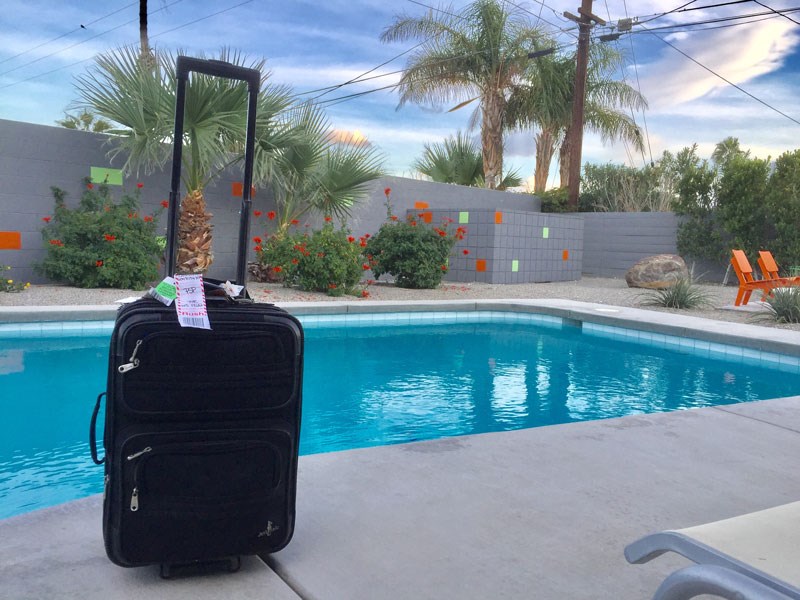I have a problem with overhead bins on airplanes. As soon as I shove my precious belongings up there and sit down for the flight, my brain shuts off and I forget I’ve put anything in it. When the plane eventually lands, I amble off without a second thought of my personal effects. I work very hard on never forgetting, but it’s happened often, and again very recently.
Once, I was responsible for remembering my wife’s dress. She was supposed to wear it at an awards ceremony in Halifax. Instead, because of me, the dress remained on the plane and flew onward to Paris. Another time, I left my precious custom-knit CBC Cowichan-style sweater in the overhead bin after disembarking in Calgary. The sweater went on a winter journey around the frozen scape of small-town Western Canada before ending up in what airline employees have called “The Black Hole”: Air Canada’s lost-and-found department.
You never want your lost item to end up there. According to one employee who spoke off the record, the national lost-and-found centre resembles a cross between Sadam Hussein’s vault and the trash compactor from Star Wars. It’s apparently so impenetrable and massive that there is no direct phone number. By a few strokes of fate, more than a month after I stupidly left it onboard, my CBC sweater was miraculously returned to me.
Cut to last week: My family was on a flight to visit the in-laws for a few days. As per usual, I stowed my suitcase in the overhead bin and promptly forgot about it while my three-year-old son went wild in the seat beside me. It was like sitting beside a hyena. I disembarked with my son and without my suitcase.
The bag was filled with clothes and toiletries, but, much more important to me, it also contained the hard-copy manuscript of Dirty Windshields, my forthcoming new book. This was the final printed proof – all 328 pages’ worth. I had already diligently read through about 250 pages or so, marking detailed notes within the margins: little mistakes, additions, credits. When I realized I’d forgotten my suitcase, after I was past security, I freaked out. My mind raced back to the month-long saga of the CBC sweater. My manuscript didn’t have time for 30 days in purgatory – the deadline for the final proof changes was the following week.
This time I was flying WestJet. The baggage attendee in the luggage area dutifully radioed back to the plane, which was just about to return to Vancouver. The crew checked and re-checked the overhead bins. “No suitcase,” they said. Sweat poured from my face. I knew that if I left the airport without it, there was a high chance I would never see the manuscript again: unchecked baggage is untraceable.
I tweeted WestJet, asking if I had a hope in hell. Dave Bidini, an author friend from Toronto, saw the tweet and sent out one of his own: “Authors! Please RT @WestJet to find @GrantLawrence’s manuscript!” Suddenly, my Twitter feed was filled with encouraging messages, all of which tagged WestJet.
Later that night, my phone rang. It was a friendly WestJet employee in Vancouver named Riccia. She found my suitcase in the damn overhead bin! Not to worry, she assured me; it would be on the first plane out the next morning. Riccia was good to her word. Despite a major dumping of snow that delayed all sorts of flights, the suitcase got out. Then Hilda from WestJet called and told me to come get my recovered suitcase and my manuscript. Phew!
A lot of us love to gripe about airlines, but I must give credit where credit is due: Thank you, WestJet, for coming through for me. I promise I’ll never touch another overhead bin.
And yes, I made my deadline.



